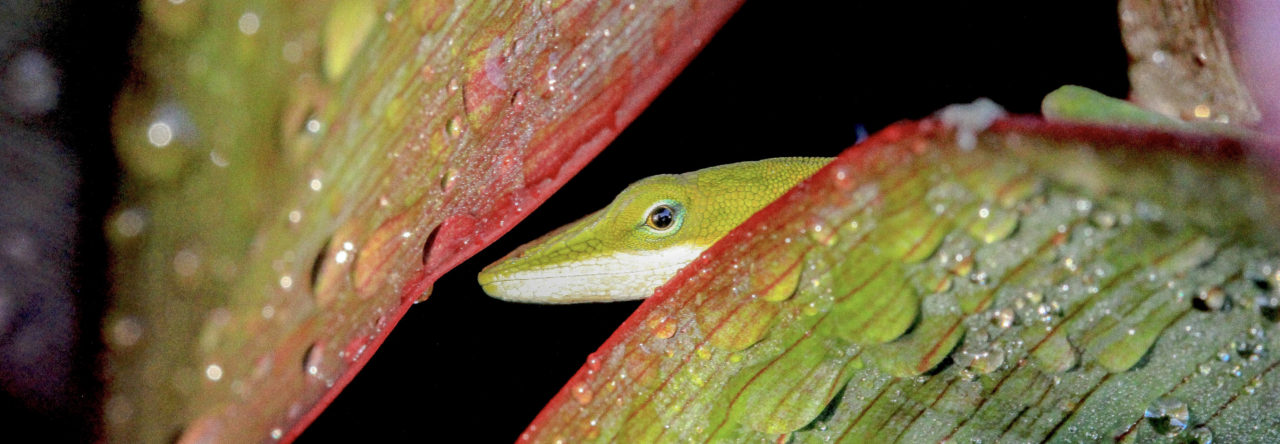Anolis nebulosus is an endemic species of Mexico. Its distribution occurs along the coasts of the Mexican Pacific, from Sinaloa to the Isthmus of Tehuantepec, but it enters the highlands a little bit in the Sierra Madre Occidental. At the end of the 80’s, very little was known about the natural history of populations of this species.
Our study was conducted at the Field Station Chamela, Jalisco México during a period from 1988-1990. It is believed that the growth rates of juveniles are restricted by available food resources. In animals that grow throughout the year, such as tropical lizards, it is believed that growth will be faster during the rainy season. Consequently, we wanted to know (a) if there are differences in growth rates between sexes of A. nebulosus; (b) whether growth rates vary among age classes, between dry and wet seasons, and between years; and (c) what extrinsic factors (e.g., environmental temperature, precipitation, and food availability) promote variation on growth rate of different age classes and sexes between seasons and years.
Our study shows the growth rate of males and females and feeding behavior; male grow faster than females; males reached sexual maturity at minimum SVL of 32 mm, while females at 35 mm of SVL; lizards live only one reproductive season, that is during rainy season–after that, they die. In 1989, juvenile males and females grew more in both seasons (rainy and dry) than adults; for 1990, there were no differences by season or between age classes.
The information that was presented about the growth of Anolis nebulosus in Ecology and Evolution is part of the information I (ARB) have shared with my ex-graduate students, now doctors (Uriel Hernández-Salinas, Raciel Cruz-Elizalde, and Christian Berriozabal- Islands), as well as my colleague, Dr. Shai Meiri. This study opens a window on knowledge of the natural history of this fascinating species model.


